December 31 stands as one of history’s most eventful days, witnessing the rise and fall of empires, groundbreaking discoveries, and moments that shaped our modern world across centuries of human achievement.

Politics and Government Events on December 31
1906 – Persian Constitution Signed
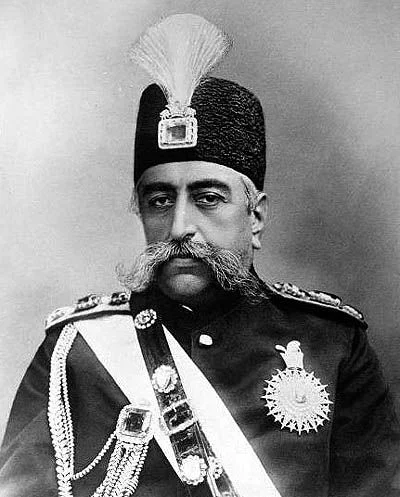
Mozaffar ad-Din Shah Qajar signed the Persian Constitution of 1906, marking a pivotal moment in Iranian history. This groundbreaking document established constitutional monarchy and limited the Shah’s absolute power.
The constitution introduced parliamentary democracy to Persia and guaranteed basic civil rights to citizens. This historic moment launched Iran’s Constitutional Revolution and transformed the nation’s political landscape forever.
1946 – Truman Declares End of World War II

President Harry S. Truman officially proclaimed the end of hostilities in World War II on this date. The presidential declaration formally concluded the deadliest conflict in human history.
This momentous announcement marked America’s transition from wartime to peacetime economy. Millions of servicemen began returning home to rebuild their lives in post-war America.
1963 – Central African Federation Collapses
The Central African Federation officially collapsed on this date, subsequently becoming three separate nations. The dissolution created the independent states of Zambia, Malawi, and Rhodesia.
This political transformation marked the end of Britain’s ambitious federation experiment in southern Africa. The collapse reflected growing African nationalism and demands for self-determination across the continent.
1965 – Central African Republic Coup Begins

Jean-Bédel Bokassa and his military officers launched a coup d’état against President David Dacko’s government. The army leader seized control of the Central African Republic in a swift military operation.
Bokassa’s rise to power would dramatically alter the nation’s political trajectory for decades. His authoritarian rule became one of Africa’s most notorious dictatorships during the Cold War era.
1983 – Nigeria Military Coup
Major General Muhammadu Buhari led a successful coup d’état that ended Nigeria’s Second Nigerian Republic. The military takeover removed civilian government and installed military rule across Africa’s most populous nation.
Buhari’s intervention promised to combat corruption and restore economic stability to Nigeria. The coup reflected widespread dissatisfaction with civilian leadership and economic mismanagement during the oil boom years.
1999 – Yeltsin Resigns from Russian Presidency
Boris Yeltsin dramatically resigned from the Russian presidency, leaving Prime Minister Vladimir Putin as acting president. This unexpected announcement shocked the international community and transformed Russian politics.
Yeltsin’s resignation marked the end of Russia’s tumultuous transition from communism to capitalism. Putin’s ascension to power would reshape Russia’s domestic policies and international relations for decades.
Military and Naval History on December 31
1942 – USS Essex Commissioned
The USS Essex, first aircraft carrier of a revolutionary 24-ship class, was commissioned into the United States Navy. This massive warship represented America’s industrial might and naval aviation capabilities.
The Essex-class carriers became the backbone of Pacific Fleet operations against Japan. These floating airfields projected American power across vast ocean distances and dominated naval warfare.
1942 – Battle of the Barents Sea
The Royal Navy achieved a decisive victory over the Kriegsmarine at the Battle of the Barents Sea. This naval engagement protected vital Arctic convoys carrying supplies to the Soviet Union.
The German defeat led to Grand Admiral Erich Raeder’s resignation one month later. This battle marked the decline of German surface fleet operations in Arctic waters.
1944 – Operation Nordwind Begins
Wehrmacht forces launched Operation Nordwind, their final major offensive on the Western Front during World War II. German troops attacked Allied positions in northeastern France and southern Germany.
This desperate offensive aimed to relieve pressure on German forces following the Battle of the Bulge. The operation ultimately failed to achieve its strategic objectives against determined Allied resistance.
1991 – First Chechen War Begins
Russian Ground Forces launched a devastating New Year’s storming of Grozny, the Chechen capital. This military assault marked the beginning of the First Chechen War’s most intense phase.
The battle for Grozny became one of the bloodiest urban conflicts of the post-Cold War era. Russian forces encountered fierce resistance from Chechen fighters defending their homeland.
Science and Discovery Milestones on December 31
1968 – First Supersonic Transport Flight
The Tupolev Tu-144 completed its maiden flight, becoming the world’s first civilian supersonic transport aircraft. This technological achievement demonstrated Soviet aviation engineering capabilities during the Space Race era.
The Tu-144 preceded the Anglo-French Concorde in supersonic passenger flight by several months. This milestone marked humanity’s entry into the age of commercial supersonic travel.
2009 – Blue Moon and Lunar Eclipse
A rare celestial event occurred as both a blue moon and lunar eclipse appeared simultaneously. This extraordinary astronomical phenomenon captivated observers across the globe.
The convergence of these two lunar events created spectacular viewing opportunities for astronomers. Such rare celestial alignments occur only once every several decades.
2011 – Moon Satellite Mission Success
NASA successfully placed the first Gravity Recovery and Interior Laboratory satellite in lunar orbit. This scientific mission aimed to map the moon’s gravitational field and internal structure.
The GRAIL satellites provided unprecedented insights into lunar formation and evolution. These measurements revolutionized scientific understanding of Earth’s celestial companion.
2019 – COVID-19 Cases Reported
The World Health Organization received reports of pneumonia cases with unknown causes in Wuhan, China. These mysterious respiratory infections would soon be identified as COVID-19.
This date marked the beginning of what would become the most significant global pandemic since 1918. The virus would eventually spread worldwide, transforming human society and medical science.
Cultural and Arts Events on December 31
1956 – Romanian Television Begins Broadcasting
The Romanian Television network launched its first broadcast in Bucharest, bringing television programming to the nation. This technological milestone connected Romanian viewers to the emerging global television culture.
The inaugural broadcast marked Romania’s entry into the television age during the Cold War era. State-controlled programming would shape Romanian cultural identity for decades to come.
1961 – Irish Television Service Launches
RTÉ, Ireland’s state broadcaster, launched its first national television service to Irish audiences. This historic broadcast brought professional television programming to the Irish Republic.
The new service transformed Irish entertainment and cultural expression throughout the country. Television programming helped preserve and promote Irish language and cultural traditions.
1995 – Calvin and Hobbes Final Comic
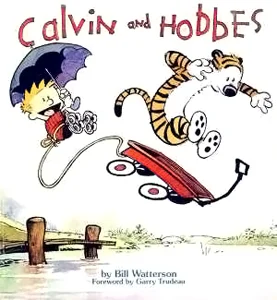
The beloved comic strip Calvin and Hobbes published its final installment after a decade of publication. Creator Bill Watterson ended the strip at the height of its popularity and cultural influence.
This conclusion marked the end of one of America’s most cherished comic strips. The philosophical adventures of Calvin and his stuffed tiger Hobbes had captured millions of readers worldwide.
Religious and Social Events on December 31
1993 – Brandon Teena Murder

Brandon Teena, a transgender man, was murdered in Nebraska in a hate crime that shocked America. This tragic killing highlighted violence against transgender individuals and sparked national conversations about LGBTQ+ rights.
The murder became the subject of documentaries and films that brought transgender issues to mainstream attention. Brandon’s death galvanized activists fighting for transgender rights and hate crime legislation.
2001 – Rwanda Adopts New Symbols
Rwanda officially adopted a new national flag and anthem as part of its post-genocide reconstruction efforts. These new symbols represented the nation’s commitment to unity and reconciliation.
The changes reflected Rwanda’s determination to move beyond the devastating 1994 genocide. New national symbols helped forge a shared identity transcending ethnic divisions.
2014 – Shanghai Stampede Tragedy

A New Year’s Eve celebration stampede in Shanghai killed at least 36 people and injured 49 others. The crowd crush occurred during festivities on the popular Bund waterfront area.
This tragic incident highlighted the dangers of large crowd gatherings during major celebrations. The disaster prompted improved crowd control measures for public events worldwide.
Business and Economic Events on December 31
1955 – General Motors Billion-Dollar Milestone
General Motors became the first United States corporation to earn over one billion dollars in annual revenue. This unprecedented financial achievement marked a new era of corporate prosperity in America.
The milestone reflected America’s post-war economic boom and the automobile industry’s dominance. GM’s success symbolized American industrial supremacy during the 1950s golden age.
1983 – AT&T Bell System Breakup
The United States Government officially broke up the AT&T Bell System monopoly on this date. This historic antitrust action divided the telecommunications giant into multiple regional companies.
The breakup transformed American telecommunications and increased competition throughout the industry. Consumers gained more choices while innovation accelerated across the telecommunications sector.
1998 – Euro Currency Values Fixed
The European Exchange Rate Mechanism froze legacy currency values and established the euro’s exchange rate. This monetary milestone created the foundation for European economic integration.
The euro’s introduction represented the most ambitious monetary union in modern history. Twelve European nations surrendered their national currencies to create a unified economic zone.
1999 – Panama Canal Transfer
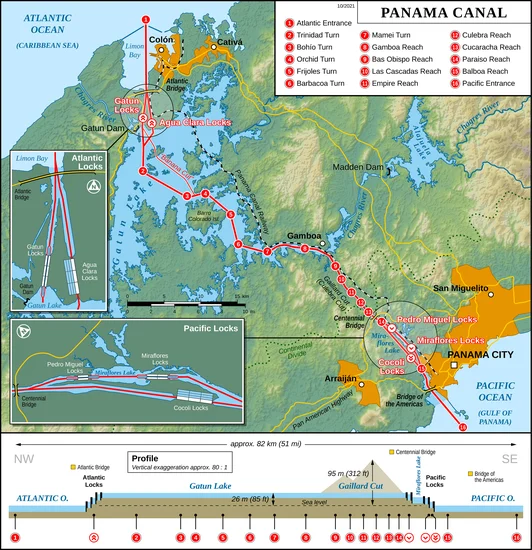
The United States government transferred control of the Panama Canal to Panama, completing a process begun in 1977. This historic handover ended nearly a century of American control over the strategic waterway.
The transfer fulfilled treaty obligations and marked a new chapter in US-Latin American relations. Panama assumed full responsibility for operating one of the world’s most important shipping routes.
Transportation and Infrastructure on December 31
1968 – Aviation Disaster in Australia

MacRobertson Miller Airlines Flight 1750 crashed near Port Hedland, Western Australia, killing all 26 people aboard. This tragic aviation accident highlighted the challenges of operating in remote Australian regions.
The crash prompted improved safety regulations for Australian domestic aviation. Investigation findings led to enhanced pilot training and aircraft maintenance standards.
1994 – Kiribati Time Zone Change
Kiribati skipped December 31 entirely as the Phoenix Islands and Line Islands changed time zones. This unprecedented calendar adjustment unified the nation’s scattered island territories.
The time zone change made Kiribati the first nation to enter the new millennium. This unique situation attracted international attention and tourism to the Pacific island nation.
2004 – Taipei 101 Opens
Taipei 101 officially opened as the world’s tallest skyscraper, standing 509 meters high. This architectural marvel showcased Taiwan’s engineering capabilities and economic prosperity.
The building’s innovative design incorporated traditional Chinese architectural elements with modern construction techniques. Taipei 101 became a symbol of Taiwan’s technological advancement and cultural identity.
Sports and Recreation on December 31
1910 – Aviation Pioneer Deaths
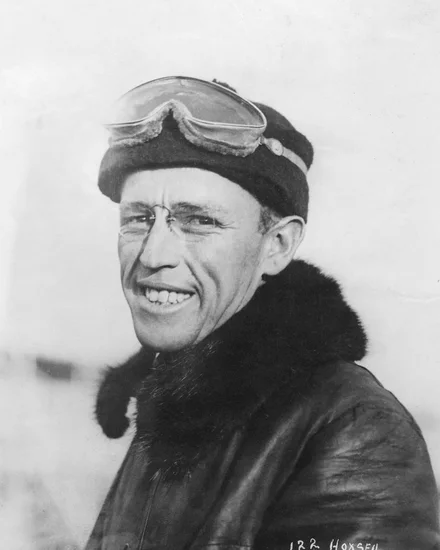
Archibald Hoxsey, a pioneering American aviator, died in a flying accident at age 26. His death occurred during the early days of aviation when flying remained extremely dangerous.
Hoxsey had been a member of the Wright exhibition team and set several altitude records. His tragic death highlighted the risks faced by early aviation pioneers.
1972 – Roberto Clemente Dies

Baseball legend Roberto Clemente died in a plane crash while delivering aid to earthquake victims in Nicaragua. The Pittsburgh Pirates star was traveling on a humanitarian mission when the aircraft crashed.
Clemente became the first Latino player inducted into the Baseball Hall of Fame. His death while helping disaster victims exemplified his commitment to humanitarian causes.
1985 – Ricky Nelson Dies
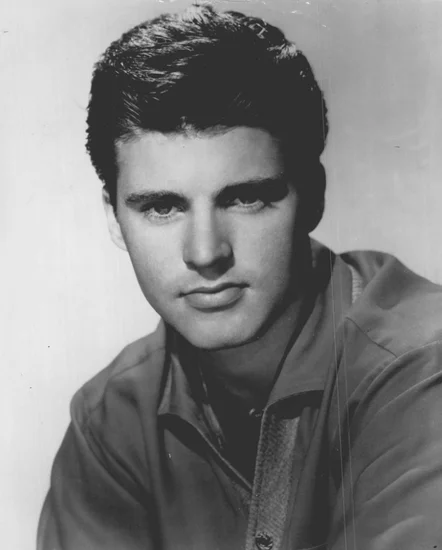
Singer and actor Ricky Nelson died in a plane crash in Texas at age 45. The teen idol and rock pioneer was traveling to a New Year’s Eve concert when the tragedy occurred.
Nelson had transitioned from television star to successful recording artist during the 1950s and 1960s. His death marked the end of an era in American popular music.
Notable Births on December 31
1908 – Simon Wiesenthal Born

Simon Wiesenthal was born in Ukraine, beginning a life that would be dedicated to pursuing Nazi war criminals. His childhood in the Austro-Hungarian Empire preceded decades of Holocaust survival and justice advocacy.
Wiesenthal would become history’s most famous Nazi hunter, tracking war criminals across the globe. His tireless efforts brought numerous perpetrators to justice and preserved Holocaust memory.
1930 – Odetta Born
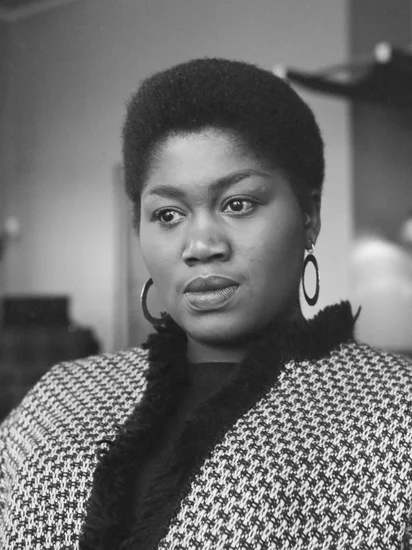
Odetta Holmes was born in Birmingham, Alabama, destined to become a legendary folk singer and civil rights activist. Her powerful voice would inspire generations of musicians and social justice advocates.
Odetta’s performances became anthems for the civil rights movement throughout the 1960s. Her musical legacy bridged traditional folk music with contemporary social activism.
1937 – Avram Hershko Born

Avram Hershko was born in Hungary, beginning a journey that would lead to groundbreaking biochemical research. His scientific curiosity emerged early in his childhood and academic pursuits.
Hershko would later win the Nobel Prize in Chemistry for discovering protein degradation pathways. His research revolutionized understanding of cellular processes and disease mechanisms.
1941 – Alex Ferguson Born

Alex Ferguson was born in Scotland, destined to become one of football’s greatest managers. His working-class upbringing instilled the determination and discipline that would define his coaching philosophy.
Ferguson would transform Manchester United into a global football powerhouse during his legendary career. His tactical genius and leadership skills created one of sports’ greatest dynasties.
1944 – Taylor Hackford Born

Taylor Hackford was born in California, beginning a career that would span decades of filmmaking excellence. His early interest in storytelling and visual arts shaped his artistic development.
Hackford would direct acclaimed films including “An Officer and a Gentleman” and “Ray.” His work earned Academy Award recognition and established him among Hollywood’s elite directors.
1945 – Connie Willis Born

Connie Willis was born in Denver, Colorado, destined to become one of science fiction’s most celebrated authors. Her imagination and writing talent emerged during her childhood and academic years.
Willis would win multiple Hugo and Nebula Awards for her innovative science fiction novels. Her works explored time travel, history, and human nature with exceptional literary skill.
1995 – Gabby Douglas Born

Gabby Douglas was born in Virginia Beach, Virginia, beginning a gymnastics journey that would make Olympic history. Her athletic abilities and determination became evident from an early age.
Douglas would become the first African American to win the Olympic all-around gymnastics gold medal. Her achievements inspired countless young athletes and broke barriers in competitive gymnastics.
Notable Deaths on December 31
1980 – Marshall McLuhan Dies

Marshall McLuhan, the visionary Canadian media theorist, died at age 69 after revolutionizing communications theory. His groundbreaking concepts about media’s impact on society transformed academic thinking.
McLuhan coined the phrase “the medium is the message” and predicted the internet age. His theories about global communication networks proved remarkably prescient in the digital era.
1993 – Zviad Gamsakhurdia Dies
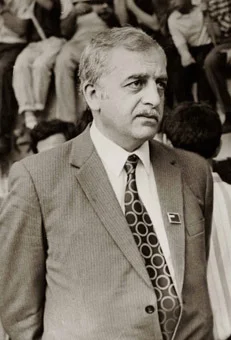
Zviad Gamsakhurdia, Georgia’s first president after Soviet independence, died under mysterious circumstances during civil war. His death marked the end of a turbulent period in Georgian political history.
Gamsakhurdia had been a prominent Soviet dissident and independence leader before becoming president. His controversial presidency and death reflected the challenges facing post-Soviet republics.
1999 – Elliot Richardson Dies
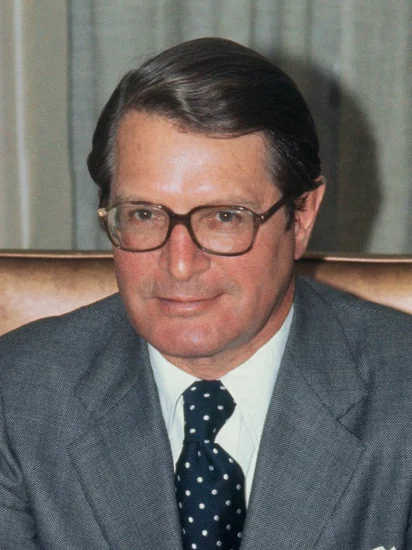
Elliot Richardson, former United States Attorney General, died at age 79 after a distinguished public service career. His principled resignation during the Watergate scandal exemplified governmental integrity.
Richardson’s “Saturday Night Massacre” resignation helped preserve American democratic institutions. His career demonstrated the importance of ethical leadership during constitutional crises.
2021 – Betty White Dies

Betty White, beloved American actress and comedian, died at age 99 after seven decades in entertainment. Her wit, charm, and longevity made her a cultural icon across multiple generations.
White’s career spanned from early television to modern social media fame. Her groundbreaking work in television and animal advocacy left an indelible mark on American culture.
2022 – Pope Benedict XVI Dies

Pope Benedict XVI, the German theologian who served as the 265th Pope, died at age 95. His death marked the end of an era in Catholic Church history and theological scholarship.
Benedict’s papacy focused on traditional Catholic teachings and intellectual discourse. His unprecedented resignation in 2013 had already distinguished him as a unique figure in papal history.
Holidays and Observances on December 31
New Year’s Eve Global Celebrations
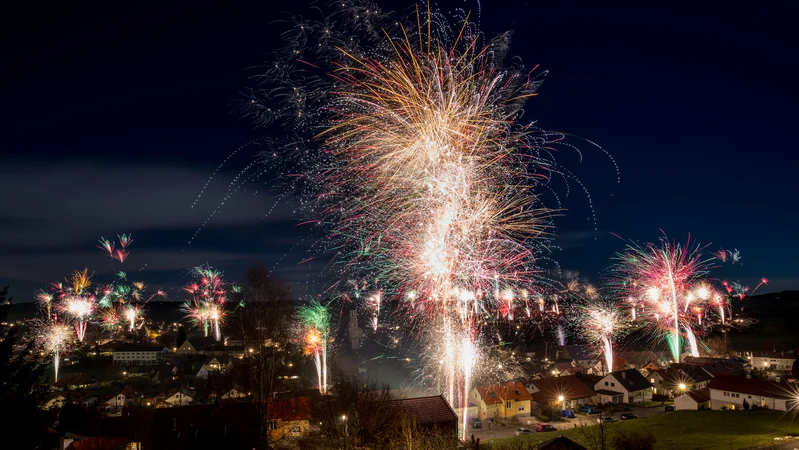
New Year’s Eve represents the ultimate international celebration, uniting billions of people worldwide in anticipation of the coming year. This global observance transcends cultural, religious, and national boundaries.
Communities across every continent organize festivities, fireworks displays, and midnight celebrations. The shared experience of welcoming a new year creates one of humanity’s most universal traditions.
Christian Feast Day Observances
Christians worldwide observe the feast day of Pope Sylvester I, who served as Pope from 314 to 335 AD. This religious observance honors the saint who guided the Church during Constantine’s reign.
Eastern Orthodox churches follow their liturgical calendar with special services and prayers. The day carries deep spiritual significance as believers reflect on the year’s blessings and challenges.
Cultural Traditions Worldwide

Japan observes Ōmisoka, a traditional celebration involving temple visits, family gatherings, and ceremonial preparations. This ancient custom emphasizes spiritual cleansing and renewal for the approaching year.
Scottish communities celebrate Hogmanay, a multi-day festival featuring unique traditions like first-footing and fire ceremonies. These cultural observances preserve centuries-old customs while embracing modern celebrations.
International Solidarity Day
Azerbaijan commemorates International Solidarity Day, recognizing the global Azerbaijani diaspora and their contributions to world culture. This observance strengthens connections between Azerbaijan and international communities.
The day celebrates Azerbaijani achievements in arts, sciences, and commerce across the globe. Cultural events and diplomatic activities highlight the nation’s international relationships and shared heritage.
